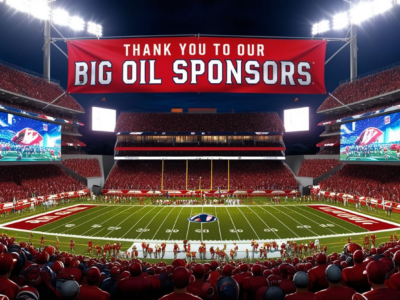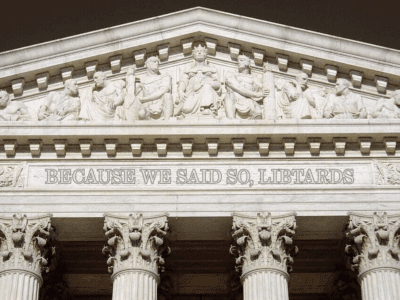Weakening Vehicle Standards Ignores Decades of Successful Innovation in Emissions Control
EPA appears poised to abdicate their responsibility to protect public health
As my colleague Ann Carlson explained, the EPA is expected to announce a catastrophic rollback this week to freeze national vehicle emission and fuel economy standards and challenge California’s authority to set their own, more stringent standards. The Trump EPA’s decision to weaken the vehicle standards despite thorough midterm reviews by both the Obama-era EPA and California that found manufacturers are perfectly capable of complying with the standards (and in fact are actually over-complying with the GHG standards) follows a disturbing trend prioritizing the demands of regulated industries over public health. It also represents yet another retreat from the strongest and most successful tool environmental regulators have to protect public health: technology-forcing.

Technology-forcing regulations drive innovation by requiring industry to meet standards that require technology beyond the current state-of-the art. This is particularly important in areas where a regulated industry has little or no incentive to act on their own to address negative externalities whose costs are borne by the public at large. In the environmental context, this shifts the economic burden previously borne by the public to cover clean up costs and public health impacts, instead forcing regulated entities to research and develop new technologies to reduce or eliminate the pollution in the first place.
Unsurprisingly, industry hates these kinds of regulations. Indeed, before Congress adopted the first national vehicle emission standards in the late 1960s, DOJ investigated whether the big four automakers had violated antitrust laws by conspiring to delay the development of air pollution control equipment. Automakers may have wanted to avoid the financial impacts of proactively reducing emissions, but uncontrolled vehicle emissions were imposing massive public health costs.
Los Angeles was ground zero for air quality research in the 1950s. The post-war population boom and the explosion of freeway construction and corresponding decline in the Pacific Electric Red Cars meant that more people than ever were driving cars in Los Angeles. Caltech chemist Arie Jan Haagen-Smit (who would later go on to become the first chair of the California Air Resources Board) discovered in 1952 that worsening Los Angeles smog episodes were caused by a photochemical reaction between California’s sunshine and nitrogen oxides (NOx) and unburned hydrocarbons (volatile organic compounds, or VOCs) in motor vehicle exhaust. NOx and VOCs react in the presence of ultraviolet radiation to form ozone, which is then trapped in the Los Angeles air basin by the surrounding mountains and a warm inversion layer from the Pacific.

Exposure to ground-level ozone causes a number of serious health impacts. Short term exposure irritates the respiratory system by reducing lung function and exacerbating asthma, and as well as increasing risks for cardiovascular disease. Long term exposure increases the risk of premature death and may result in reproductive and developmental harms.
It didn’t take long for California to act to reduce vehicle emissions. The state Motor Vehicle Pollution Control Board issued the nation’s very first tailpipe standards for VOCs and CO in 1966, NOx in 1971, and diesel particulate in 1982. Congress would follow California’s lead in the 1970 Clean Air Act amendments, authorizing the newly created EPA to issue strict new tailpipe standards at the national level. Automakers realized they couldn’t meet the new VOC, CO, and NOx emission standards using existing technologies and minor engine modifications, leading directly to the introduction of the catalytic converter in 1975. With each new ratcheting-down of emission standards, patent activity in the vehicle emissions control industry would explode.
Research shows a significant positive correlation between the introduction of technology-forcing regulations and automaker innovation. And these innovations have resulted in significant emission reductions and associated health benefits. But many areas of California remain woefully out of attainment with health-based ambient air quality standards for ozone, and we still have a long way to go before reaching our 2030 climate targets. Reducing vehicle emissions even further is a key part of meeting both the ozone standard and our climate goals.
As former EPA Administrator Gina McCarthy aptly described in her op-ed for Automotive News back in April when the potential vehicle rollback was first announced, then-Administrator Pruitt and his cronies “view all rules, by definition, to be anti-business even when they were undertaken to provide essential public health and climate protections and would provide far more benefits than costs.” This perfectly sums up the short-sightedness that Trump’s EPA seems determined to continue under new acting Administrator Wheeler. By freezing the CAFE standards and attacking California’s authority to to regulate vehicle emissions, the EPA is ignoring the externalities that technology-forcing rules are designed to address and instead pursuing an anti-regulatory agenda that will have measurable impacts on our health, our air quality, and our climate for generations to come.
At its heart, technology-forcing is a refusal to accept the status quo. It’s based on a recognition that existing technologies do not adequately protect public health, and a belief that regulated industries can and should do better. Senator Edmund Muskie of Maine put it best during Congressional debate over the Clean Air Act amendments of 1970:
The first responsibility of Congress is not the making of technological or economic judgments or even to be limited by what is or appears to be technologically or economically feasible. Our responsibility is to establish what the public interest requires to protect the health of persons. This may mean that people and industries will be asked to do what seems to be impossible at the present time.
It’s this sense of public service, this belief that public health is more important than industry bottom lines, that’s most sorely lacking in the political appointees currently running EPA. I hope we see it return someday.
Reader Comments
9 Replies to “Weakening Vehicle Standards Ignores Decades of Successful Innovation in Emissions Control”
Comments are closed.






Walt Disney Company Plans to Eliminate Plastic Straws:
“………Eliminating plastic straws and other plastic items are meaningful steps in our long-standing commitment to environmental stewardship,” Bob Chapek, the chairman of Disney Parks, Experiences, and Consumer Products, said in a press release. “These new global efforts help reduce our environmental footprint, and advance our long-term sustainability goals……..”
http://thehill.com/policy/energy-environment/398959-walt-disney-company-plans-to-eliminate-its-use-single-use-plastic
EPA Head Met With Former Lobbying Clients Despite Saying He Wouldn’t:
Acting Environmental Protection Agency (EPA) head Andrew Wheeler has been in meetings with representatives from three former lobbying clients since he started working at the agency.
E&E News reported Thursday that Wheeler met with biodiesel producer Darling Ingredients, agriculture company Archer Daniels Midland Co. and the South Coast Air Quality Management District, all of which were former clients from his time at Faegre Baker Daniels Consulting.
All of the meetings were between when Wheeler came to the EPA as deputy administrator in April and when he took over as acting administration earlier this month.
Wheeler signed a Trump administration ethics pledge when he started at the EPA, promising that he would not “participate in any particular matter involving specific parties that is directly and substantially related” to former clients for two years.
http://thehill.com/policy/energy-environment/399089-epa-head-met-with-former-lobbying-clients-despite-saying-he-wouldnt
I can’t believe my eyes. Are you actually admitting that your faith in Wheeler was misplaced?
We support Secretary Wheeler, he is well qualified and an excellent successor to Secretary Pruitt. The article above is merely an example of the normal everyday criticism that is to be expected, and it serves as proof that Wheeler is in fact a good man.
Cheers!!!
Yea, I guess I should have known better.
“and it serves as proof that Wheeler is in fact a good man.”
So how is breaking his ethics pledge “proof” that he is a good man? I’d like to understand the mental gymnastics of the conservative extremist mind.
Regarding California’s vehicle emission standards, Meredith said;
“….It’s based on a recognition that existing technologies do not adequately protect public health….”
Dear Meredith,
I respectfully disagree. Existing vehicle emission standards and pollution control technologies do in fact adequately protect public health to the maximum extent practicable. California’s vehicle emission standards do not increase protection of public health, and do not mitigate climate change. That’s a good example of old empty meaningless political rhetoric from a bygone era. Things are different now, there is less hype and hysteria which yields better performance in federal environmental regulatory programs.
Otherwise, your analysis is well written, concise and understandable. Have a good day.
Just because you don’t care about our children’s future, doesn’t mean the rest of us don’t as well. You are content letting the world burn and saying we should focus on religious matters while the rest of us actually want what is best for the material future of Earth.
Maybe more to the point: you live a comfortable first-world life and are better able to ignore the consequences of climate change to those less fortunate, flying in the face of your supposed Christian mercy. It is no coincidence that your our industry, and thus your own wallet, benefit from ignoring the dangers to the world’s poor.
Shame on you.
*your own industry
MSNBC’s Chris Hayes Fuels Outcry by Describing Climate Change as ‘ratings killer’:
“…….MSNBC anchor Chris Hayes’ admission that climate change is a “ratings killer” has infuriated environmentalists who accused the liberal network of being more concerned about its bottom line than with fighting global warming.
Asked about his network’s lack of climate-change coverage, Mr. Hayes tweeted Tuesday that “almost without exception. every single time we’ve covered it’s been a palpable ratings killer. so incentives are not great.”
His frank assessment was met with chuckles from climate skeptics like Anthony Watts, who called it “hilarious, but true,” given that global warming typically brings up the rear on polls and surveys of top voter concerns………”
https://m.washingtontimes.com/news/2018/jul/26/msnbcs-chris-hayes-fuels-outcry-describing-climate/